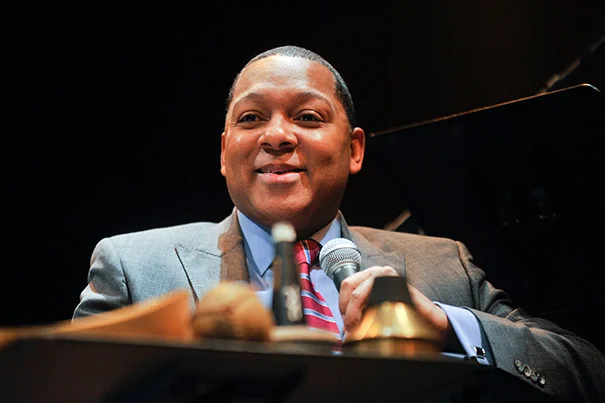
Wynton Marsalis at Harvard: A Masterclass on the Hidden Meanings in American Music
Wynton Marsalis, the legendary trumpeter, composer, and educator, is more than just a musician; he’s a storyteller, historian, and one of the most influential voices in the realm of American music. His Harvard-sponsored teaching series, “Hidden in Plain View: Meanings in American Music,” is a required lesson for all music enthusiasts and a treasure for CoolMedia Magazine readers. If you’re searching for a professor who is as informed as he is charismatic, as experienced as he is humorous, look no further than Marsalis.
In April 2011, Marsalis embarked on this ambitious and insightful three-year performance and lecture series at Harvard University, titled “Hidden in Plain View: Meanings in American Music.” The series consisted of six lectures that explored the profound, often unrecognized symbols within American music and their deeper connection to the democratic process. Marsalis, with his unparalleled understanding of the musical landscape, used this platform to reveal how music not only entertains but also serves as a powerful metaphor for the ideals and struggles inherent in American society.
The series began with the lecture “Music as Metaphor,” where Marsalis delved into the hidden symbols in American music, shedding light on how they mirror and illuminate the American democratic experience. Marsalis argued that music, with its diverse styles and rich history, is a reflection of the country’s complex cultural fabric. He illustrated these ideas through live performances, which brought his points to life and allowed the audience to experience firsthand the connections he was making.
Marsalis didn’t take on this project alone. He was joined by a talented ensemble of musicians, each bringing their own expertise and passion to the stage. Ali Jackson, a master of rhythm, handled the drums; Dan Nimmer’s fingers danced across the piano keys; Walter Blanding’s tenor sax infused soul into every note; Carlos Henriquez’s bass lines provided the heartbeat; James Chirillo added texture and depth with his guitar and banjo; and the renowned Mark O’Connor brought the violin’s voice into the conversation. Together, they created a dynamic and immersive musical experience that was as enlightening as it was entertaining.
This series wasn’t just about lectures and performances; it was about fostering a deeper understanding of American music’s role in shaping the nation’s cultural and social narrative. Marsalis’s discussions highlighted how jazz, blues, and other American music forms have been pivotal in expressing the ideals of freedom and democracy, and how they have served as vehicles for social change and commentary.
Marsalis’s ability to connect with his audience is unparalleled. His lectures were not mere academic exercises but engaging, thought-provoking explorations filled with humor, personal anecdotes, and profound insights. He demonstrated how music serves as a unifying force, bridging gaps between different communities and generations, and how it can be a tool for reflection, introspection, and societal change.
For CoolMedia readers, this series is more than just a historical account; it’s an invitation to explore the layers of meaning embedded in the music we listen to every day. Marsalis’s teachings encourage us to look beyond the surface and understand the cultural and historical contexts that shape our musical heritage. By doing so, we not only become better listeners but more informed and engaged citizens.
In conclusion, Wynton Marsalis’s “Hidden in Plain View: Meanings in American Music” is a testament to the power of music as a reflection of our society and a force for understanding and progress. This series is essential for anyone who wishes to delve into the rich tapestry of American music and its profound impact on our collective consciousness. Through his lectures, Marsalis not only educates but inspires, leaving an indelible mark on all who have the privilege to listen.
The two-beat groove
Delve into Wynton Marsalis’s six-part Harvard University lecture series, covering various topics, including jazz, what it means to be American, and the importance of cultural literacy and the arts in liberal arts education. XVII. Syncopation- Expect the Unexpected In this chapter, Wynton explains how syncopation challenges convention.
Wynton at Harvard, Chapter 20: Blues Fundamentals
Delve into Wynton Marsalis’s six-part Harvard University lecture series, covering a range of topics including jazz, what it means to be American, and the importance of cultural literacy and the arts in the liberal arts education.
XX. Blues Fundamentals
In this chapter, Wynton argues why “the blues is a train,” signifying freedom.
Go to jazz.org/wyntonatharvard for the complete series.
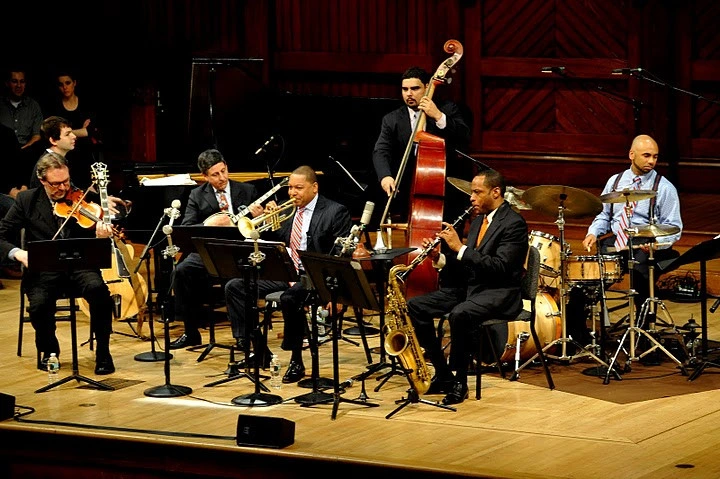
Performances by Marsalis’s ensemble (with a special guest, the iconic fiddler Mark O’Connor) punctuate the lecture with musical explanations.
Mark O’Connor – fiddle
Walter Blanding – reeds
James Chirillo – guitar
Dan Nimmer – piano
Carlos Henriquez – bass
Ali Jackson – drums
Wynton at Harvard: “Hidden in Plain View: Meanings in American Music”
Videos 1-26
It covers many fundamental devices, forms, and songs that bind the different Americas together at the root. Marsalis contends, ” ‘Me vs. You and ‘Us vs. Y’all’—vs. ‘All of Us’—remains the struggle at the heart of humankind and the central debate of our Constitution. How do we achieve a common ground when individual victories are much more valued? This problem has been resolved harmoniously in our musical arts for over a century. Under the vibrant din of our democracy, on the lower frequencies, sonic metaphors speak to and for us all. What they tell us about what it means to be American could serve us well in these divisive and uncivil times.”
Performances by Marsalis’s ensemble (with a special guest, the iconic fiddler Mark O’Connor) punctuate the lecture with musical explanations.
Mark O’Connor – fiddle
Walter Blanding – reeds
James Chirillo – guitar
Dan Nimmer – piano
Carlos Henriquez – bass
Ali Jackson – drums

Wynton at Harvard, Chapter 1: Music and Meaning
Delve into Wynton Marsalis’s six-part Harvard University lecture series, covering a range of topics including jazz, what it means to be American, and the importance of cultural literacy and the arts in liberal arts education. I. Music and Meaning In this chapter, Wynton introduces his ‘Me vs. You’ and ‘Us vs. Y’all’ vs. ‘All of Us’ contention and argues that music has the significant power to bring us together and evoke moods and memories. Go to jazz.org/wyntonatharvard for the complete series. “Hidden in Plain View: Meanings in American Music” is a series of six lectures delivered at Harvard University between 2011 and 2014 and sponsored by the Office of the President and Provost. The inaugural lecture, “Music as Metaphor,” was delivered in Sanders Theatre to a capacity crowd. It is an interpretation of the many unobserved symbols in American music and an investigation into how they illuminate the democratic process. It covers many of the fundamental devices, forms, and songs that bind the different Americas together at the root. It is Marsalis’s contention that “‘Me vs. You’ and ‘Us vs. Y’all’—vs. ‘All of Us’—remains the struggle at the heart of humankind and the central debate of our Constitution. How do we achieve a common ground when individual victories are so much more valued? This conundrum has been resolved harmoniously in our musical arts for more than a century. Under the vibrant din of our democracy, on the lower frequencies, sonic metaphors speak to and for us all. What they tell us about what it means to be American could serve us well in these divisive and uncivil times.” Performances by Marsalis’s ensemble (with a special guest, the iconic fiddler Mark O’Connor) punctuate the lecture with musical explanations. Mark O’Connor – fiddle Walter Blanding – reeds James Chirillo – guitar Dan Nimmer – piano Carlos Henriquez – bass Ali Jackson – drums

These Harvard-sponsored teachings by Wynton Marsalis and orchestra are required curricula for Durham Cool readers. You will not find a more knowledgeable, charismatic, experienced, and humorous professor than Wynton.
The Cool Media team has watched the entire series. Truly inspirational even for those nonmusicians on our team.
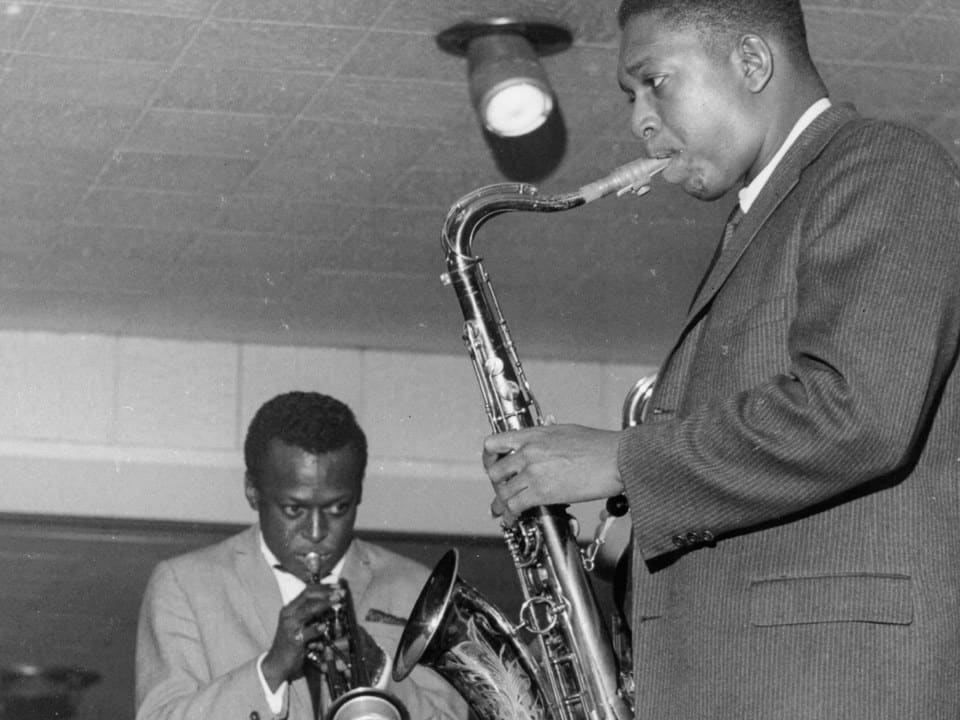
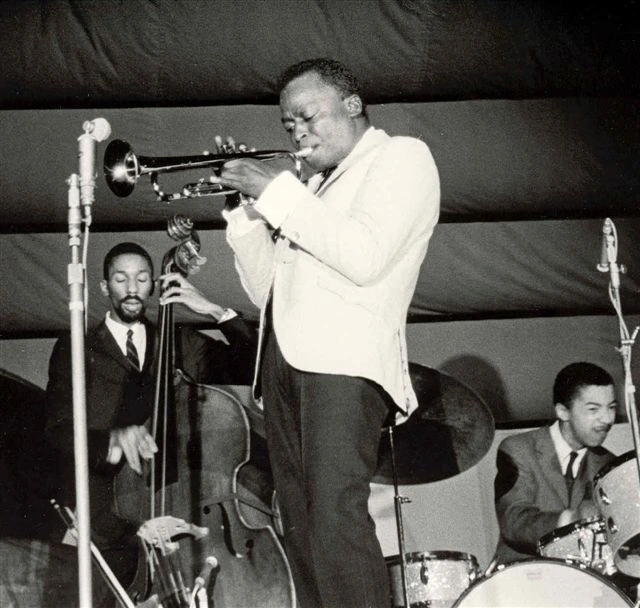
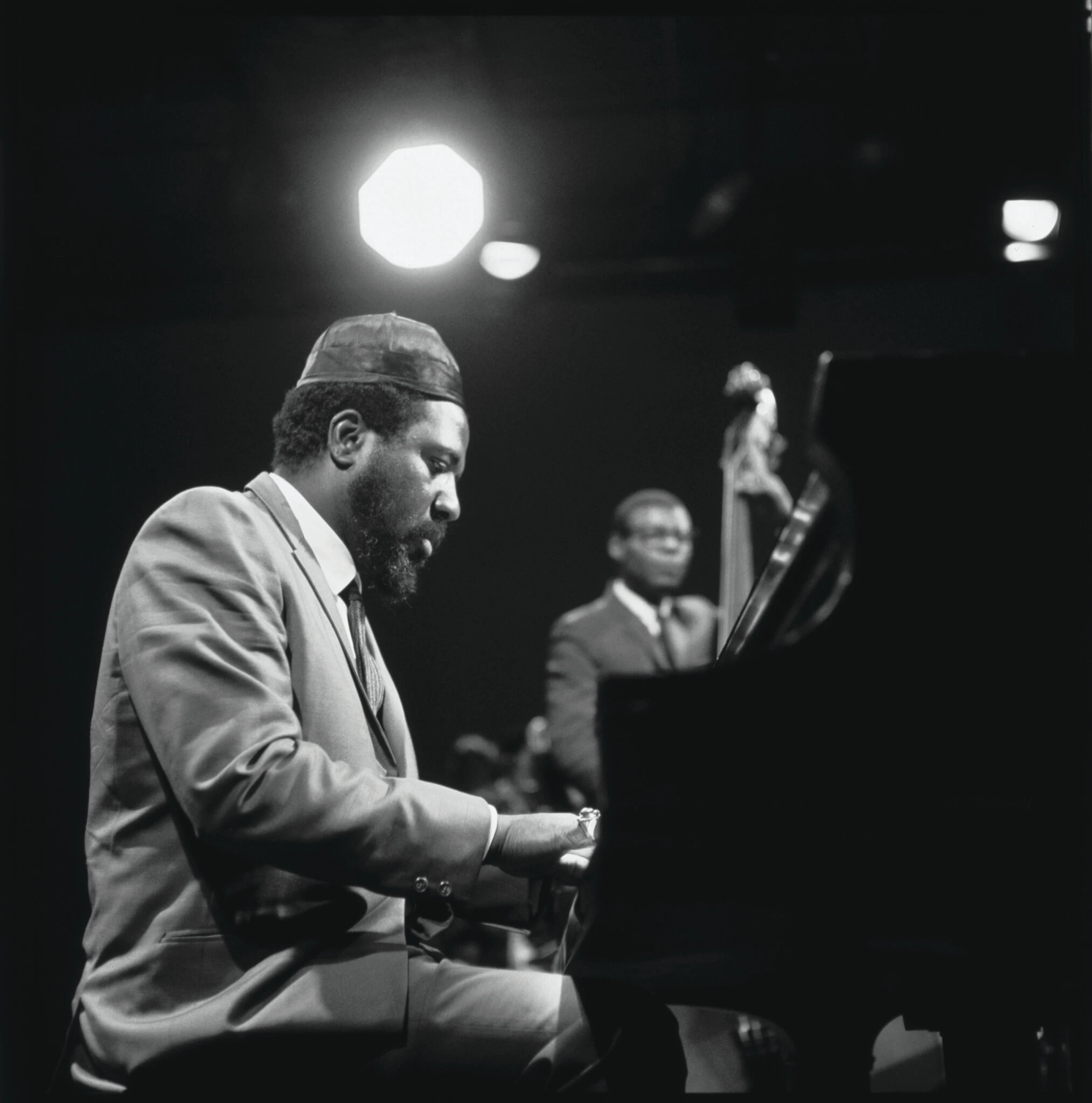
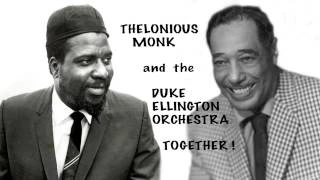
Wynton at Harvard, Chapter 18: The Melting Pot
Essentially Ellington 2019: Q&A with WYNTON MARSALIS
Essentially Ellington 2019 High School Jazz Band Competition & Festival Q&A with WYNTON MARSALIS Thursday, May 9, 2019
Wynton at Harvard, Chapter 6: Approaches to Improvisation
Delve into Wynton Marsalis’s six-part Harvard University lecture series, covering a range of topics including jazz, what it means to be American, and the importance of cultural literacy and the arts in the liberal arts education. XVIII. The Melting Pot In this chapter, Wynton explains why “the blues is the melting pot of America.” Go to jazz.org/wyntonatharvard for the complete series. “Hidden in Plain View: Meanings in American Music” is a series of six lectures delivered at Harvard University between 2011 and 2014 sponsored by the Office of the President and Provost. The inaugural lecture, “Music as Metaphor,” was delivered in Sanders Theatre to a capacity crowd. It is an interpretation of the many unobserved symbols in American music and an investigation into how they illuminate the democratic process. It covers many of the fundamental devices, forms, and songs that bind the different Americas together at the root. It is Marsalis’s contention that “‘Me vs. You’ and ‘Us vs. Y’all’—vs. ‘All of Us’—remains the struggle at the heart of humankind and the central debate of our Constitution. How do we achieve a common ground when individual victories are so much more valued? This conundrum has been resolved harmoniously in our musical arts for more than a century. Under the vibrant din of our democracy, on the lower frequencies, sonic metaphors speak to and for us all. What they tell us about what it means to be American could serve us well in these divisive and uncivil times.” Performances by Marsalis’s ensemble (with a special guest, the iconic fiddler Mark O’Connor) punctuate the lecture with musical explanations. Mark O’Connor – fiddle Walter Blanding – reeds James Chirillo – guitar Dan Nimmer – piano Carlos Henriquez – bass Ali Jackson – drums
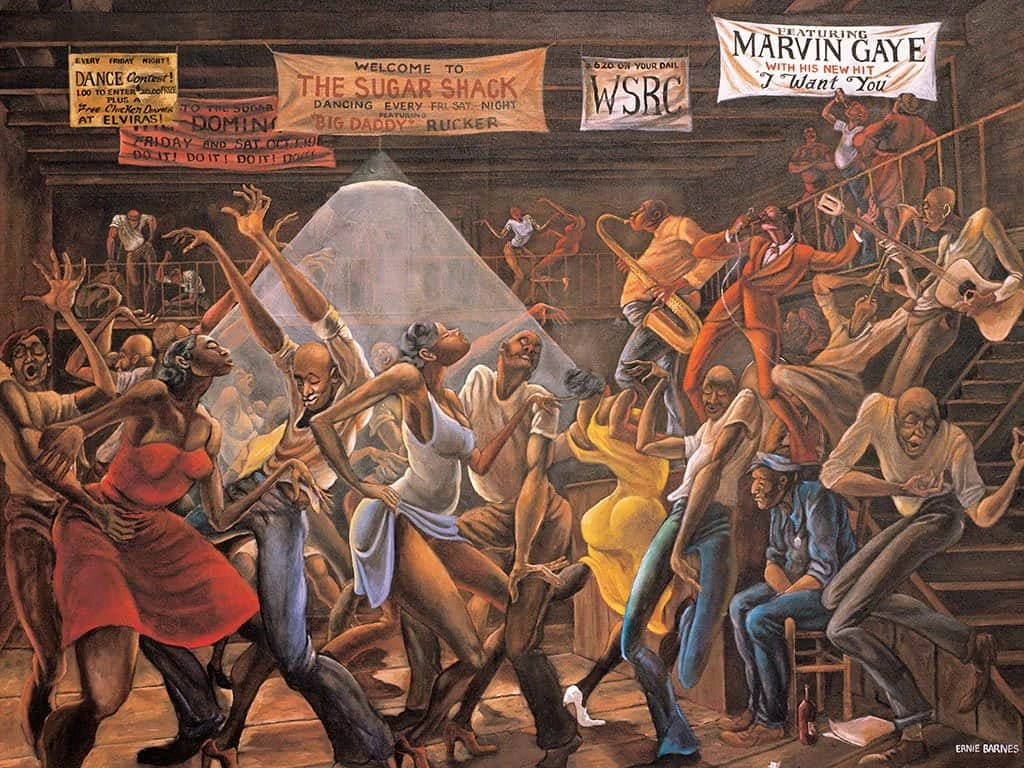
Ellis Marsalis Memorial
Music in this video
Music in this video
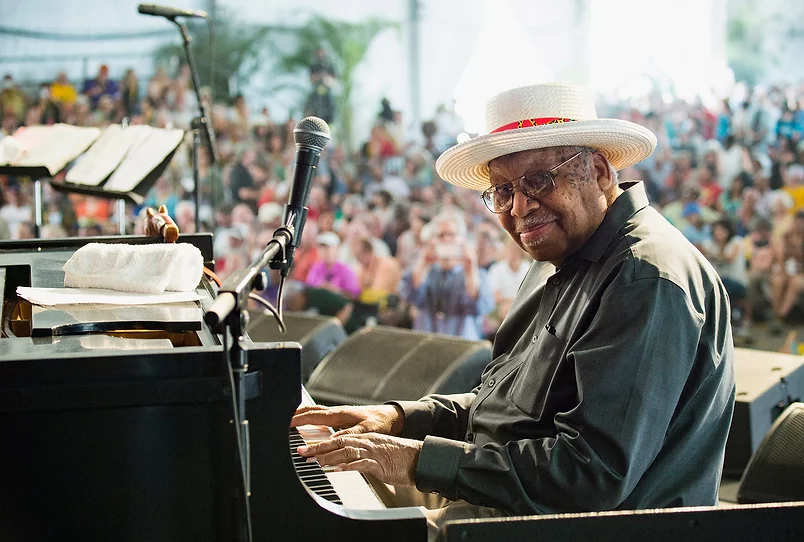
Is the BMPCC 4K still worth it in 2021? | STOP ASKING
There seems to be an influx of videos on YouTube asking if “the BMPCC4K is still worth it.” It’s time to stop asking. In this video, we cover why it’s still worth it in 2021 and for the next 5 years. What do you think?
BMPCC4K 2022 | Best budget cinema camera for filmmakers
Should you buy the Black magic pocket cinema camera 4k in 2022? Well, it depends. This is my journey and process on how I came to decide that is was the best camera for me and my budget. I’ve been using the BMPCC4K for over 6 months now so here are my thoughts.
A budding filmmaker like you needs the Blackmagic Pocket 4k VS Hollywood Movie Camera | Red Dragon
BMPCC 4K Review – I spent one year with the Blackmagic Pocket Cinema 4K, am I still in love?
BMPCC 4K Review – I spent one year with the Blackmagic Pocket Cinema 4K, am I still in love? Another BMPCC 4K Review?! I didn’t just buy the Pocket 4K and use it for a week. I used the BMPCC 4K for a full year before producing this in-depth camera review on the Blackmagic Pocket Cinema 4K to provide my fellow filmmakers with the knowledge they need before you purchase the Pocket 4K. Find out why in 2020, I think the BMPCC 4K is the best value cinema camera for filmmakers like you. Learn how I put this entry-level cinema camera to the test when it comes to filmmaking and videography work in the field. In this 1-year review, I also show you some BMPCC4K Footage that I’ve shot, as well as show you some low-light footage from the BMPCC 4K.

